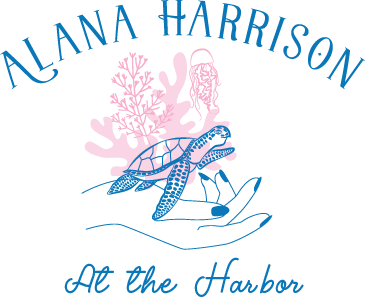If you love seafood, fishing, or the coast you have come to the right place! I’m Alana and here you will find secrets I have learned from growing up and working in North Carolina’s seafood industry. From catching to cooking, I will show you what it takes to get high quality sustainable fish to your plate and tips to effortlessly prepare a seafood meal to remember at home.
On these pages, you will see first hand how United State’s fisheries are managed, harvested, processed, and prepared. Harvesting wild seafood is a career unlike any other, truly unimaginable for those who have not experienced it. Through these stories, recipes, photos and videos I hope you will see seafood with a new perspective. It is not just food on a plate, every fillet has a story you have never heard because nobody has told you… Until now.
I was born and raised in a commercial fishing family in Hatteras Village, a quiet beach town of about 500 people located on the southern end of North Carolina’s Outer Banks. Hatteras is an isolated barrier island located 32 miles off the mainland, we jut out into the Atlantic Ocean just miles away from the Continental Shelf. Here, the warm Gulf Stream collides with the cold Labrador Current, creating one of the most exciting fishing grounds on the East Coast. My dad fished these waters targeting mainly Snapper-Grouper, King Mackerel, and Tunas on his 32′ boat for over 30 years.
When I was 12-years-old, cutbacks started so my mom opened a retail seafood market because it was apparent the fishing business alone could no longer support a family. I helped mom in the market after school and on breaks while my brother helped dad, fishing nets in the Pamlico Sound or going offshore.
Around 2012, my dad gave the offshore fishing business to my brother when he was 21-years-old. After graduating from Wake Forest University, I came back to manage our seafood market, Harbor House. Since then, I have became active in fisheries management sitting on local and federal advisory panels representing commercial fishermen.
I grew up watching my dad get his thousand cuts from fishery managers but he would fill out logbooks like clockwork, go fishing every morning at 3AM, and loyally follow every regulation sent out. My parents would slowly and painfully learn how to adapt under fishery management plans because it was apparent there was no other option.
By the time I was ten-years-old, I understood: my father did not work for the government, but they were his boss. Letters all the time from National Marine Fisheries Service and the South Atlantic Fishery Management Council – regulation updates, meeting notices, permit renewals, quota changes, gear changes – but never any paychecks. Those came every two weeks after fish sales were settled in New York and fuel bills piled up in Hatteras.
Over the years, I have come to accept monitoring measures such as trip limits, season closures, government observers, as part of conservation. We have to make sure the resource needs to be there for the next generation. But, here is the thing, conservation only works if everybody is on board.
Despite decades of effort from the commercial industry, things are not improving like projected. Stocks are not even close to rebuilding and its been over 15 years for some species. Enough time has passed to make me truly worry that maybe these fishery management plans won’t be successful. Then I think how there is no protection for people like myself who are waiting for the rebuilding plan to actually.
While US commercial fishermen have been suffering through rebuilding plans – under reassurances they would work – our marketplace has been sold to foreign countries. They supply more than domestic fishermen at a much lower price because they lack basic fisheries management. It is not fair for domestic fishermen to be overregulated and imports be unregulated but our government lets it happen.
I have spent a lifetime working inside these fine lines drawn by appointed fishery officials. I play the game by their rules yet I have never been allowed to win, only lose. When do you stop playing the game? How many hands of blackjack do you play before accepting the house always wins?






